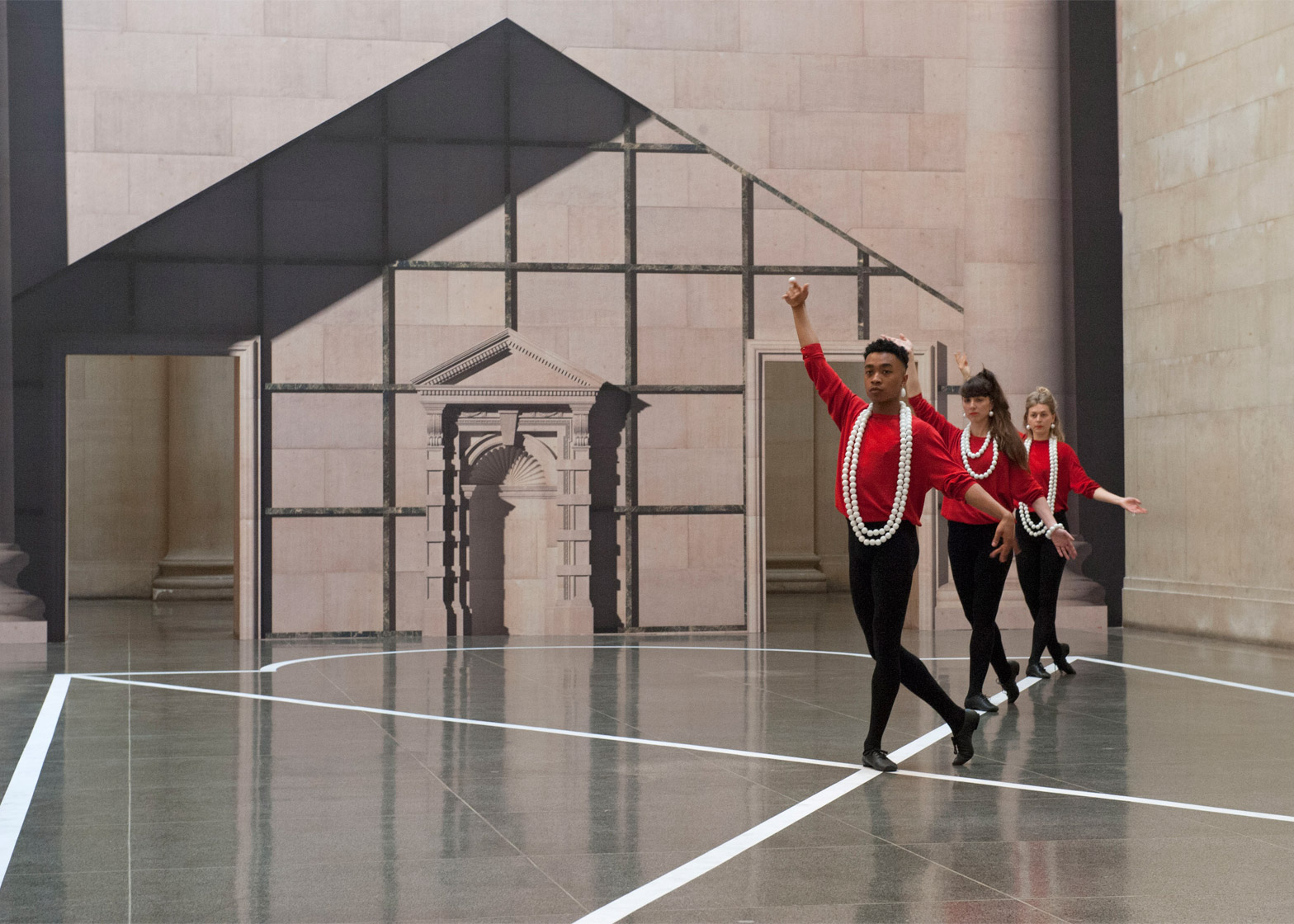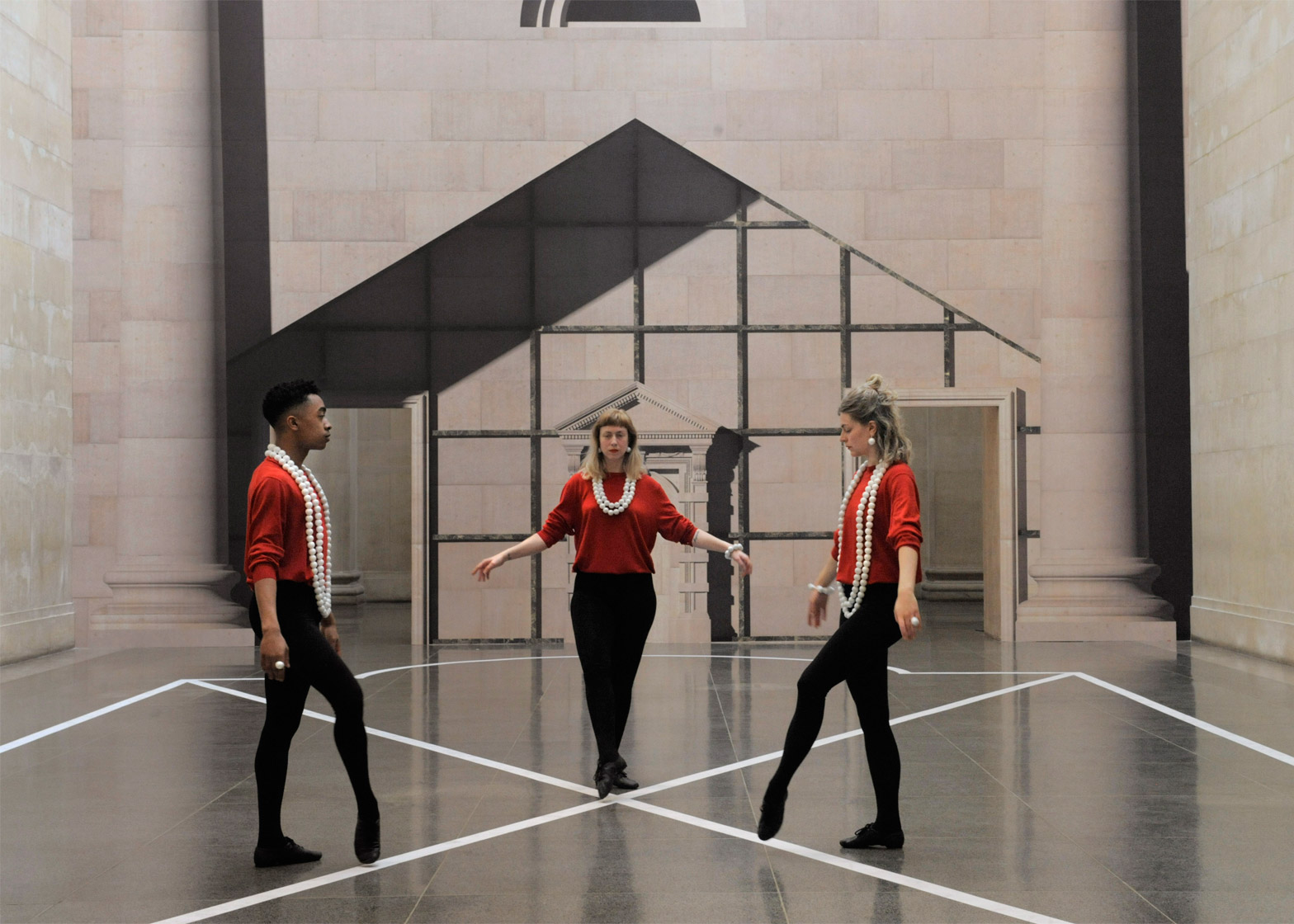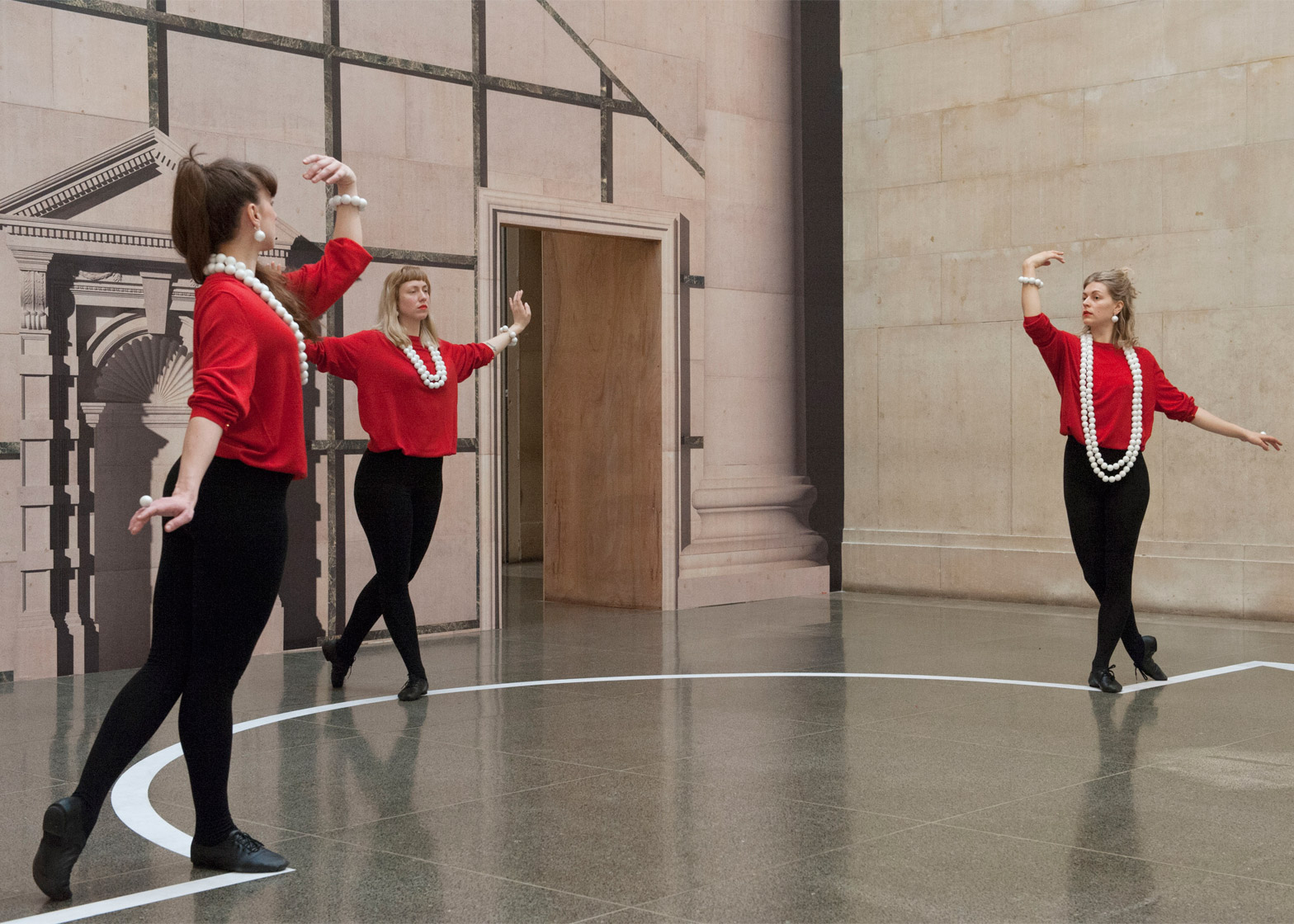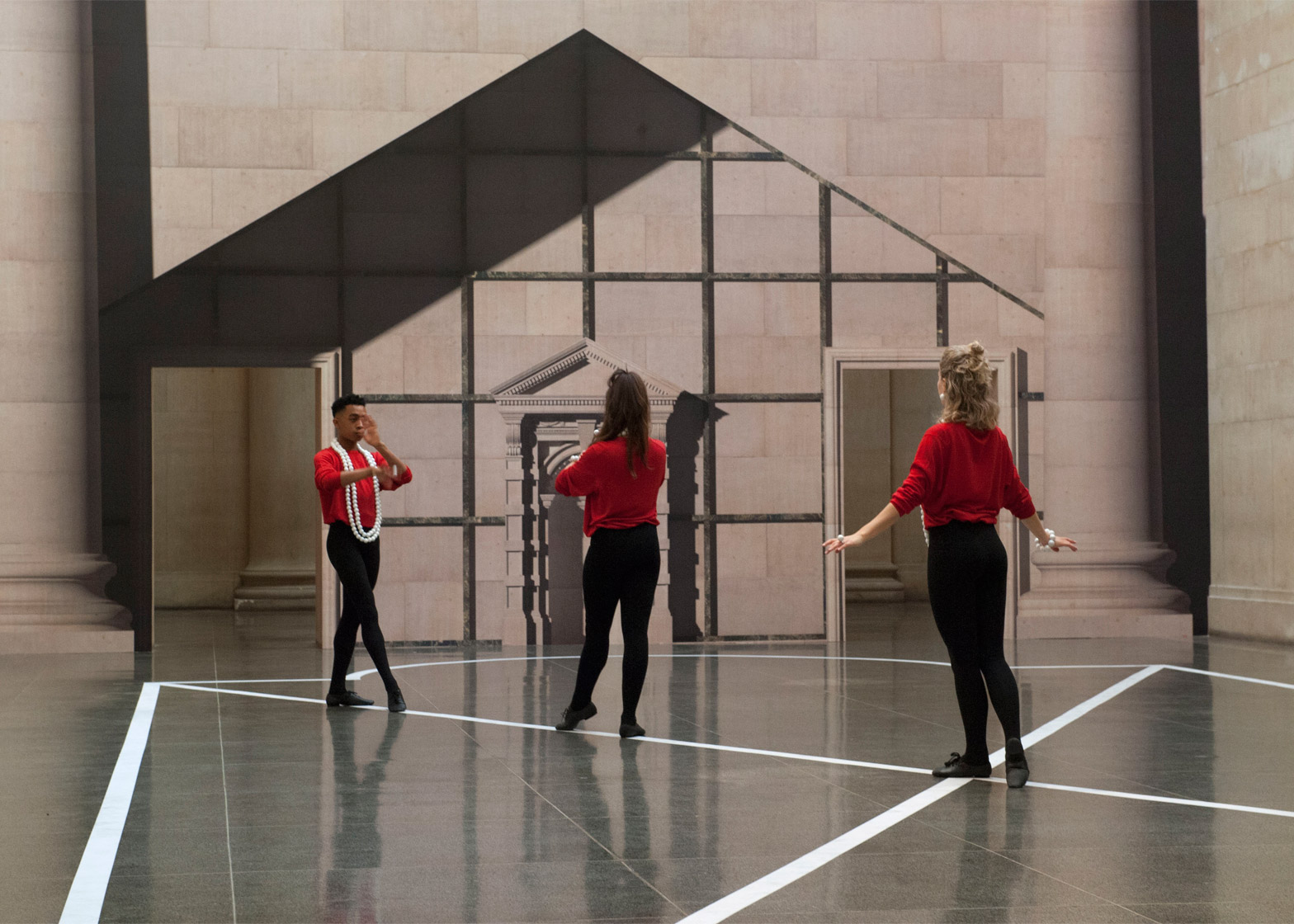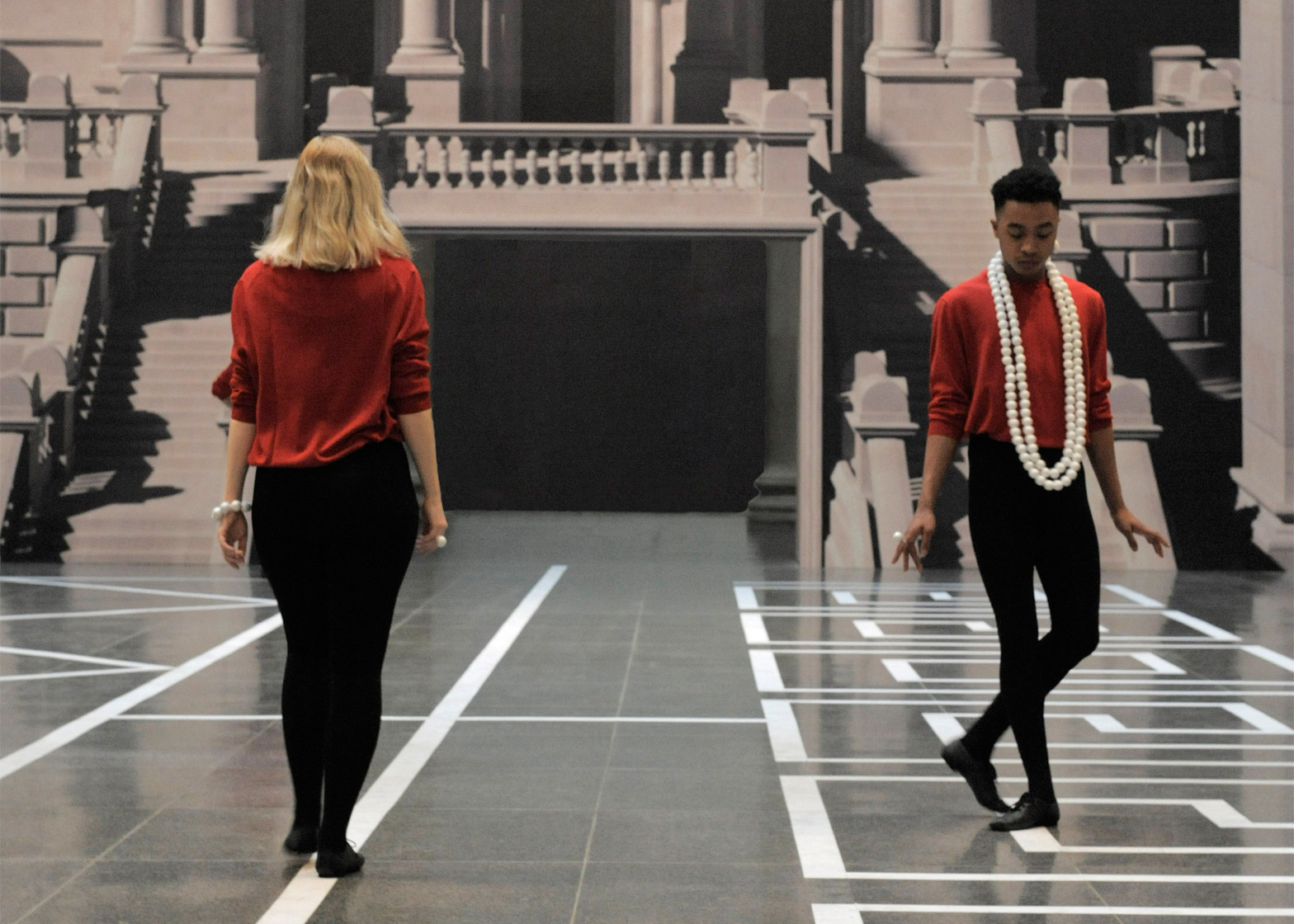Dancers dressed in bright red jumpers, ballet leggings and oversized pearls promenade and gesticulate within a distorted architectural setting created by artist Pablo Bronstein for his new Tate Britain show (+ slideshow).
Called Historical Dances in an Antique Setting, the work was devised by Bronstein for the Tate Britain's annual Duveen Galleries commission.
Dancers perform between two giant architectural renderings that span the breadth of the gallery space.
The images depict the exterior of the Tate Britain building, which is embellished with decorative columns, niches and pediments. But several elements have been manipulated, creating a version of the building that doesn't really exist.
The artist, who was born in Argentina and based in London, often creates performances, structures and drawings based on reimaginings of 17th- to 19th-century architecture.
His interests lie in the "inaccuracies that occur when the past is re-created" – some of which can be seen in his reinterpretation of Classical architecture in the Neoclassical Duveen Galleries.
"Grand architecture is one of the things I'm most interested in, so it was a rare opportunity to be able to create work in such a unique setting as the Duveen Galleries," said Bronstein.
"The commission also presented a perfect and challenging opportunity to work with performance on a large scale."
A trio of dancers perform dramatic promenading, pose-striking and gestures over white floor markings based on the plans of Baroque gardens and a Greek key.
As the dancers follow the markings of the key – a decorative meandering border pattern – they perform abstracted balletic turns.
The choreography of exaggerated gestures, including hand flutters and curtsies, is based on Sprezzatura – the nonchalant etiquette used by 16th-century courtiers – fused with contemporary dance styles including voguing.
Elements of the performance are based on the late 1960s video by Bruce Nauman, which saw the American artist pacing jerkily around the outline of a square.
"The floor markings refer to architectural plans, but they're specifically about Baroque gardens and promenading spaces for this work," curator Linsey Young told Dezeen.
"That's something he's specifically interested in for this work because he's interested in showing off," she added, "but they also directly talk to works by Bruce Nauman and choreography by Rosemary Butcher, people who are interested in pedestrian movement."
Bronstein combined 1980s power-dressing with classic ballet attire for the dancers' costumes, which include 1980s-style jumpers, black ballet leggings and strings of comically large fake pearls.
"Pablo Bronstein's work consistently makes for deliciously jarring encounters between past and present, and between art and society," said Tate director Alex Farquharson.
"It's fantastic to see his work come to life in the aesthetic and institutional grandeur of Tate Britain's Duveen Galleries."
Mark Wallinger, Michael Landy, Phyllida Barlow and Martin Creed are among the artists who have created work for past Duveen Galleries commissions. For his 2004 commission, Michael Landy built a scale model of his father's semi-detached house inside the galleries.
Historical Dances in an Antique Setting will run until 9 October 2016, with live performances between 11am and 5pm daily.
Bronstein previously created a combined lighthouse and beach hut for the Folkestone Triennial, incorporating exaggerated features that allude to the work of Baroque architect Nicholas Hawksmoor.

